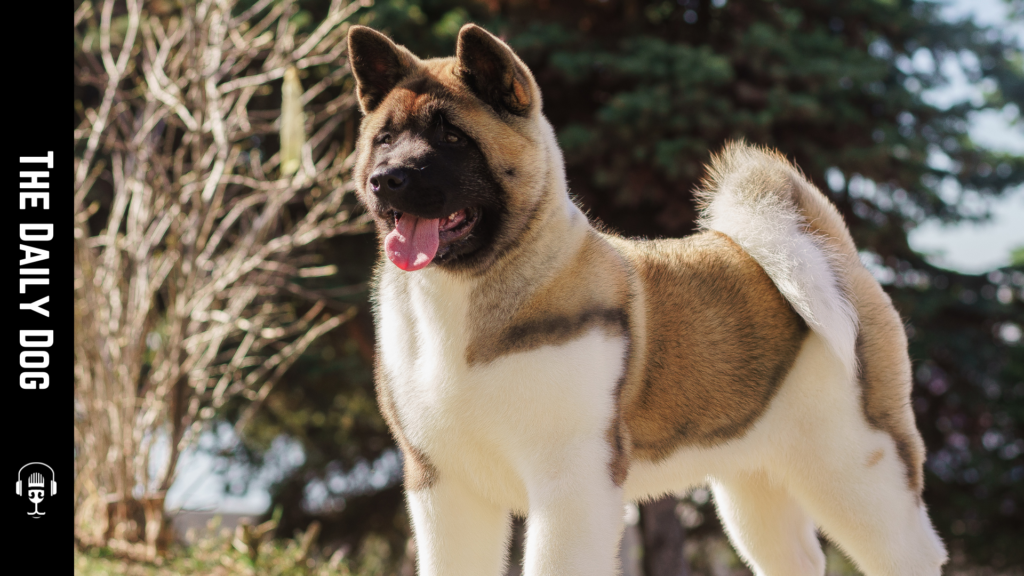The Akita is more than just a breed; it’s a symbol of loyalty, strength, and rich cultural heritage. Originating from Japan, this magnificent dog is known for its striking appearance and noble demeanor. In this article, we will explore the history, characteristics, care, and training of the Akita, highlighting why it deserves a special place in the hearts of dog lovers everywhere.
A Brief History of the Akita
The Akita’s roots can be traced back to the mountainous regions of northern Japan, specifically the Akita Prefecture. Initially bred for hunting large game such as bears and boars, these dogs were revered for their bravery and endurance. The breed is believed to have descended from the Matagi, a hunting dog, and was later crossed with the Tosa, leading to the development of the Akita as we know it today.
In the early 20th century, the Akita gained recognition beyond Japan’s borders. The breed was introduced to the United States after World War II, and it quickly captured the hearts of many. One of the most famous Akitas, Hachiko, became a symbol of loyalty and devotion, further solidifying the breed’s place in popular culture.
Physical Characteristics of the Akita
The Akita is a large, powerful dog with a sturdy build. Males typically weigh between 100 to 130 pounds, while females range from 70 to 100 pounds. Their height can vary from 24 to 28 inches, depending on gender and lineage.
Appearance
Akitas have a broad head, small, triangular ears, and deep-set eyes that give them a dignified expression. Their thick double coat can come in a variety of colors, including white, brindle, and various shades of red. The outer coat is harsh and straight, while the undercoat is soft and dense, providing insulation and protection against harsh weather.
Temperament
Known for their loyalty, Akitas are often described as aloof yet affectionate. They are protective of their families and can be wary of strangers, making them excellent watchdogs. While they are generally good with children and other pets, socialization from a young age is crucial to ensure they grow up to be well-rounded adults.
Caring for Your Akita
Owning an Akita comes with responsibilities. Proper care is essential to ensure a long, healthy life for your furry friend. Here are some key considerations:
Nutrition
Feeding your Akita a balanced diet is vital. High-quality dog food formulated for large breeds is recommended. Pay attention to their age, weight, and activity level when determining portion sizes. Always consult your veterinarian for personalized dietary advice.
Exercise
Akitas are active dogs that require regular exercise to maintain their physical and mental well-being. Daily walks, playtime, and opportunities for socialization are essential. However, keep in mind that Akitas can be prone to certain health issues, such as hip dysplasia, so it’s important not to over-exert them.
Grooming
The Akita’s thick double coat requires regular grooming, especially during shedding seasons. Brushing your Akita at least once a week will help reduce shedding and keep their coat healthy. Regular baths are also beneficial, but be cautious not to over-bathe, as this can strip essential oils from their skin.
Training Your Akita
Training an Akita can be both rewarding and challenging. Their independent nature means they may not always be eager to please, but with patience and consistency, they can become well-mannered companions.
Socialization
Early socialization is crucial for Akitas. Exposing them to various environments, people, and other animals will help them develop into confident and well-adjusted adults. Consider puppy classes or playdates with other dogs to facilitate this process.
Obedience Training
Obedience training should begin as early as possible. Basic commands such as sit, stay, and come are essential for effective communication with your Akita. Positive reinforcement techniques, such as treats and praise, work best with this breed.
Advanced Training
Once your Akita has mastered basic commands, consider enrolling them in advanced training classes. Agility training, scent work, or obedience competitions can provide mental stimulation and strengthen the bond between you and your dog.
Health Considerations for Akitas
Like all breeds, Akitas are prone to certain health issues. Being aware of these can help you provide the best care possible.
Common Health Issues
Some common health concerns for Akitas include:
- Hip Dysplasia: A genetic condition that affects the hip joints, leading to arthritis and pain. Regular veterinary check-ups can help detect this early.
- Autoimmune Disorders: Akitas are susceptible to various autoimmune diseases, which can affect their skin and overall health.
- Hypothyroidism: A condition where the thyroid gland does not produce enough hormones, leading to weight gain and lethargy.
Regular veterinary visits, a balanced diet, and proper exercise can help mitigate these risks.
Regular Veterinary Check-Ups
Routine check-ups with a veterinarian are essential for monitoring your Akita’s health. Vaccinations, parasite prevention, and dental care should be part of your pet care routine. Early detection of health issues can lead to better treatment outcomes.
The Akita’s Role in Family Life
Akitas are known for their loyalty and protective nature, making them excellent family pets. They thrive in homes where they receive love, attention, and regular exercise.
Living Arrangements
While Akitas can adapt to various living situations, they thrive in homes with ample space, such as houses with yards. They can live comfortably in apartments if given enough daily exercise.
Interaction with Children
Akitas are generally good with children and can form strong bonds with them. However, supervision is recommended, especially with younger kids, to ensure safe interactions. Teaching children how to interact with dogs respectfully can foster a positive relationship.
The Akita in Popular Culture
The Akita’s noble stature and loyal nature have made it a popular symbol in various aspects of culture. The story of Hachiko, an Akita who waited for his deceased owner at a train station every day for nearly a decade, is a poignant reminder of the breed’s loyalty and dedication. This story has been immortalized in films and literature, further endearing the Akita to the public.
Conclusion
The Akita is a breed that embodies strength, loyalty, and beauty. With proper care, training, and socialization, an Akita can be a loving and devoted companion. Whether you’re an experienced dog owner or a first-time pet parent, the Akita offers a unique and rewarding experience. By understanding their needs and characteristics, you can ensure that your Akita leads a happy, healthy life, while also enriching your own.
By highlighting the unique traits and care requirements of the Akita, this article aims to provide valuable insights for potential owners and enthusiasts alike. Whether you’re considering welcoming an Akita into your home or simply wish to learn more about this magnificent breed, the Akita’s legacy of loyalty and love is sure to resonate with you.










